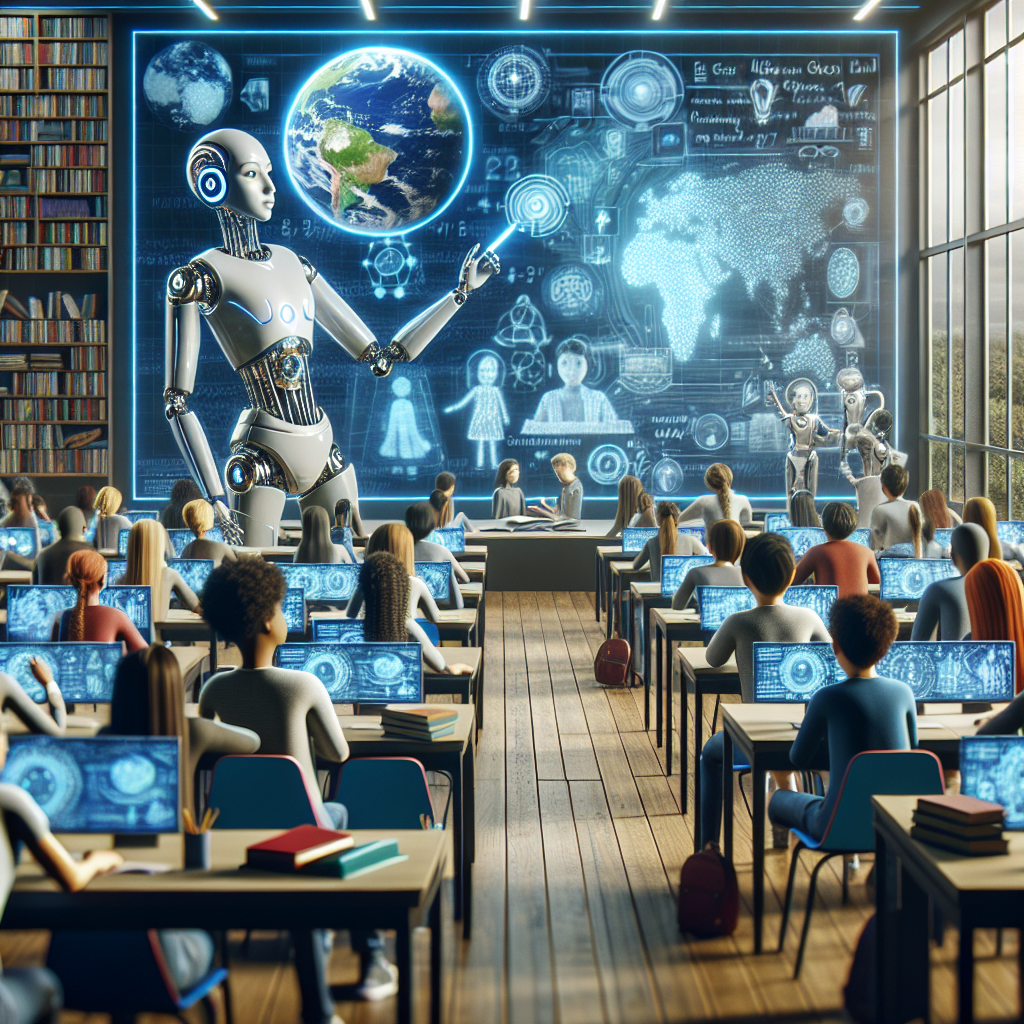AI and Education: Fostering Global Literacy and Sustainable Learning
In the rapidly evolving landscape of the 21st century, the intersection of artificial intelligence (AI) and education is emerging as a pivotal arena for fostering global literacy and promoting sustainable learning. With the integration of AI technologies, educational paradigms are shifting, offering unprecedented opportunities to tailor learning experiences to individual needs, bridge educational gaps, and prepare learners for a future characterized by technological ubiquity.
The Transformation of Educational Spaces
AI is revolutionizing the educational sector by personalizing learning experiences. Intelligent tutoring systems, powered by AI algorithms, adapt to the learning pace and style of each student, offering customized resources and exercises. This approach not only enhances understanding and retention but also encourages students to become active participants in their learning journey.
Moreover, AI-driven analytics allow educators to monitor students’ progress in real-time, identifying areas of difficulty and intervening promptly. This data-driven approach ensures that instructional strategies are aligned with learners’ needs, improving educational outcomes.
Bridging the Educational Divide
One of the most significant impacts of AI in education is its potential to democratize learning. Through AI-powered platforms, quality education can transcend geographical boundaries, reaching learners in remote and underserved regions. By providing access to educational resources and interactive learning experiences, AI is playing a crucial role in bridging the digital divide and fostering global literacy.
Furthermore, AI technologies can support multilingual education, breaking down language barriers that often hinder learning. Natural language processing (NLP) tools can translate educational content into multiple languages and offer real-time language support, making education more inclusive and accessible.
Preparing for a Future-Ready Workforce
As the world becomes increasingly digital, there is a growing demand for individuals who are not only literate but also possess digital competencies and critical thinking skills. AI in education is pivotal in preparing students for the future workforce, equipping them with the necessary skills to navigate the challenges of a rapidly changing world.
Through project-based learning and AI-driven simulations, students can engage in complex problem-solving, collaborate with peers across the globe, and develop innovative solutions to real-world issues. These experiences foster a culture of lifelong learning, creativity, and adaptability, which are essential in the 21st-century job market.
Sustainable Learning and Environmental Awareness
AI can also play a vital role in promoting environmental education and sustainability. By integrating AI-powered tools and resources into the curriculum, educators can provide students with insights into climate change, conservation, and sustainable practices. Virtual reality (VR) and augmented reality (AR) can offer immersive learning experiences, enabling students to explore different ecosystems, understand the impact of human activities on the environment, and inspire action towards sustainability.
The Challenges Ahead
Despite its potential, the integration of AI in education is not without challenges. Issues related to privacy, data security, and ethical considerations must be addressed to ensure that AI technologies are used responsibly and for the benefit of all learners. Additionally, there is a need for significant investment in infrastructure and professional development to fully realize the benefits of AI in education.
FAQs
Q: Can AI replace teachers?
A: No, AI cannot replace teachers. While AI can enhance the learning experience by providing personalized support and resources, the role of teachers as facilitators, mentors, and guides is irreplaceable. Teachers bring empathy, understanding, and a human touch to the learning process, which AI cannot replicate.
Q: Is AI in education accessible to all?
A: While AI has the potential to democratize education, there are still challenges related to accessibility. Ensuring equitable access to AI-powered educational tools requires investment in infrastructure and efforts to bridge the digital divide.
Q: How can AI support students with special needs?
A: AI can provide customized learning experiences tailored to the unique needs of students with disabilities. For example, speech-to-text technologies can assist students with hearing impairments, while AI-driven educational games can make learning more engaging for students with learning disabilities.
Q: What are the ethical considerations in using AI in education?
A: Ethical considerations include issues related to privacy, data security, and bias in AI algorithms. It is crucial to develop and implement AI technologies in education with a focus on transparency, fairness, and respect for individual rights.
Q: How can educators prepare for the integration of AI in education?
A: Educators can prepare by staying informed about the latest developments in AI and seeking professional development opportunities to learn how to effectively integrate AI tools into their teaching practices. Collaboration with technology experts and participation in educational technology communities can also provide valuable insights and support.
In conclusion, AI in education offers immense potential for fostering global literacy and sustainable learning. By personalizing learning experiences, bridging educational divides, and preparing students for the future, AI can transform the educational landscape. However, realizing this potential requires a collaborative effort among educators, policymakers, technologists, and learners to address the challenges and ensure that AI serves as a powerful tool for educational equity and excellence.

